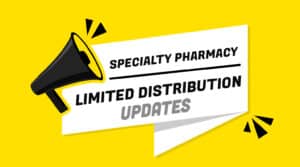We’ve reported several times on the disparity of specialty drug pricing based on where the drugs are administered. None of our readers would be surprised that significant pricing disparity continues in the marketplace and that pricing, in declining order, is most costly at hospitals, then physician practices and finally at specialty pharmacies.
None the less, it is good to keep tabs on exactly how broad the disparity is today. A new survey released by AHIP has updated stats on a basket of ten leading specialty therapies that include the following….. Darzalex, Keytruda, Lucentis, Ocrevus, Opdivo, Orencia, Prolia, Remicade, Rituxan, and Tecentriq.
Key findings:
- On average, physician offices marked up drug prices over the price charged by a specialty pharmacy by $1,559 (+23%) and hospitals applied a markup of $8,278 (+118%).
- The percentage of markup varied a lot on a drug by drug basis but in all cases hospitals charged the most followed by physician practices.
It should not be a surprise that the American Hospital Association (AHA) would fire back questioning the accuracy of the article and the study as “fraught with half-truths and methodological flaws.” Yet, the AHA response pivoted saying, “High and rising drugs prices, as well as unaffordable cost-sharing requirements imposed by health plans, put considerable strain on patients and hospital resources. These resources hospitals need to deliver a wide range of high-acuity services that only they can provide, as well as to continue serving as the only site of care that treats all patients regardless of ability to pay,” the association said.
What the AHA is really saying is that they can push their cost of operation onto patients who, increasingly, are now paying huge $$$s through deductibles and coinsurance for hospital administered and dispensed drugs.
———————————————————————————-
How Specialty Pharmacies Compare to Provider, Hospital on Drug Pricing
Drug pricing is a major concern among employers and insurers, but research has highlighted a possible price control mechanism.
April 17, 2023 – AHIP released updated data on drug pricing increases, comparing hospital costs and the prices that physician offices pay compared to specialty pharmacies.
The payer organization analyzed price increases for the ten drugs that are frequently delivered through specialty pharmacies. Data for these 10 drugs came from the Merative MarketScan Commercial Database. The data reflect hospital, physician office, and specialty pharmacy prices from the start of January 2019 through the end of December 2021.
The ten drugs that the payer organization assessed were Darzalex, Keytruda, Lucentis, Ocrevus, Opdivo, Orencia, Prolia, Remicade, Rituxan, and Tecentriq.
The study found that drugs were less costly for patients when payers leveraged a specialty pharmacy. On average, physician offices marked up drug prices by $1,559 and hospitals applied a markup of $8,278.
“Specialty pharmacies lower a patient’s health care costs by preventing hospitals and physicians from charging exorbitant fees to buy and store specialty medicines themselves,” the study explained. “Secure, direct delivery is more efficient and effective and reduces health care costs.”
In a hospital setting, the cost of drugs was, on average, around $8,200 higher than it would be if the drugs were obtained through a specialty pharmacy. Hospitals charged 118 percent more than specialty pharmacies for the same drugs.
The difference in physician offices was not as stark but remained significant. In physician offices, the same drug could cost $1,500 more than it would through a specialty pharmacy. Drug prices in physician offices were 23 percent more than specialty pharmacies’ prices.
Prolia, a treatment for osteoporosis, saw the most dramatic price difference when comparing physician office and hospital drug prices to specialty pharmacy drug prices. In the hospital setting, the price of Prolia was 212 percent of the cost through a specialty pharmacy or $2,795 more. The drug price was 49 percent higher than specialty pharmacies in the physician office setting or $651 more.
The hospital price was closest to the specialty pharmacy price for the drug Ocrevus, a therapy for multiple sclerosis. But even in this case, the hospital price was 65 percent higher than the specialty pharmacy alternative and the markup was worth $22,078, which is more than any of the other markups.
Among physician offices, the price difference was smallest for Remicade, which treats Crohn’s Disease and psoriasis, and Rituxan, which treats rheumatoid arthritis. Physician offices priced these drugs six percent higher than specialty pharmacies. Nevertheless, the small markups were still worth hundreds of dollars. Physician offices marked up Remicade by $277 on average and Rituxan by $579.
“Specialty pharmacies improve health care affordability while protecting patient safety. AHIP encourages lawmakers to support the use of specialty pharmacies, and to reject policies that take away lower-cost choices from patients,” the study concluded.
Payers have turned increasingly to specialty pharmacies to control rising drug costs. In November 2022, Elevance Health announced plans to acquire a specialty pharmacy that would focus on chronic disease management.
Employer groups have recommended that employers leverage specialty pharmacies to break into biosimilar adoption. At the beginning of 2023, experts anticipated that this strategy would take root.
By Kelsey Waddill, Health Payer Intelligence
———————————————————————–
AHIP, AHA point fingers on cost of specialty drugs
Rylee Wilson
Insurer groups say hospitals are to blame for higher costs of specialty drugs, while hospitals say the problem stems from drug manufacturers and pharmaceutical benefit managers.
In a report published April 17, AHIP found the average cost per treatment was nearly $8,300 higher for physicians-administered drugs purchased in hospitals than for drugs obtained through specialty pharmacies.
AHIP’s report compared prices for the 10 physician-administered drugs that accounted for the most Medicare spending in 2020.
“Health insurance providers are developing innovative solutions every day to make prescription drugs more accessible and affordable, and specialty pharmacies have a big role to play,” AHIP President Matt Eyles said in a April 17 news release. “They represent a safe alternative to hospital and physician purchased drugs that can boost access and affordability for all Americans.”
Specialty pharmacies handle drugs for rare or chronic conditions not stocked in retail pharmacies. These medications often have high prices.
PBMs often operate their own specialty pharmacies.
In an April 25 blog post, the American Hospital Association said AHIP’s report is “fraught with half-truths and methodological flaws.”
In the post, the association said AHIP’s report does not take into account safety issues that can arise from “brown-bagging” or “white-bagging” drugs, where patients receive medications from a specialty pharmacy and must bring them to their physician to be administered.
The AHA also criticized AHIP’s methodology, writing that AHIP drew “sweeping conclusions” from a review of just 10 drugs.
The blame for high prices rests with drug manufacturers, not hospitals, according to the AHA.
“High and rising drugs prices, as well as unaffordable cost-sharing requirements imposed by health plans, put considerable strain on patients and hospital resources. These resources hospitals need to deliver a wide range of high-acuity services that only they can provide, as well as to continue serving as the only site of care that treats all patients regardless of ability to pay,” the association said in the blog.
“Neither health insurers, nor their PBM and specialty pharmacy affiliates, have any such obligation to their communities,” the AHA added.






